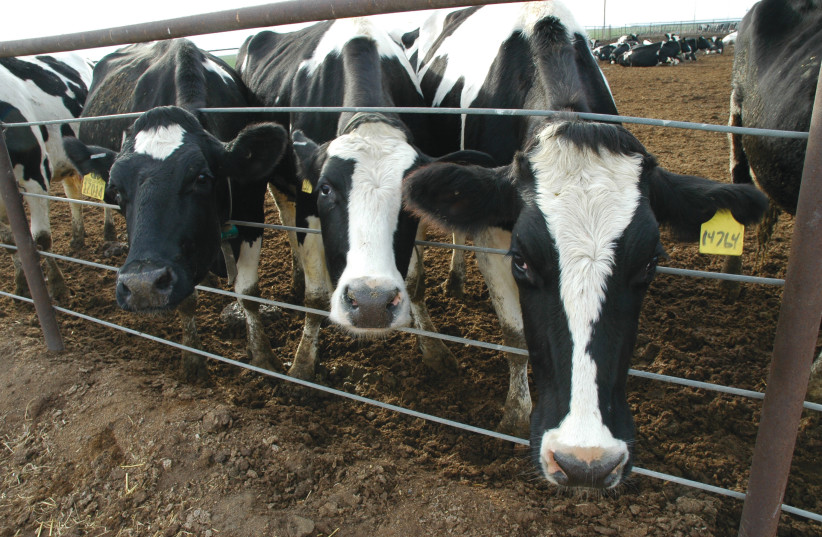Human connection is one of the most critical elements to a healthy and happy life. A new study reports that these same benefits and concepts apply for other animals, too, including young cows.
The research, published in January in peer-reviewed journal JDS Communications, found that socialization with other calves and humans—even for as little as five minutes—can improve overall calf well-being, especially during the weaning stage.
Animal scientists at the University of Florida knew from previous studies that calves seek out human contact. Cows are social, “herding” animals with a relatively complex social order and need to interact.
But researchers wanted to take this information a step further to understand how the human-animal relationship might impact abnormal calf behaviors, such as "sucking or chewing on their housing pens or bedding, on their pen-mates or human handlers—all of which are common in the period after calves are fed.”
These kinds of behaviors are generally considered signs of frustration and can take a toll on calves’ health.

“Calves are active and seek stimulation following milk-feeding, so providing more things to do, like brushing, may calm calves, reducing sucking behaviors after feeding and increasing rest,” said researcher Emily Miller-Cushon.
“Calves are active and seek stimulation following milk-feeding, so providing more things to do, like brushing, may calm calves, reducing sucking behaviors after feeding and increasing rest."
Emily Miller-Cushon
The team enrolled 28 Holstein heifer calves to either individual or paired housing from birth to seven weeks old and standardized their contact with humans over this period to include feeding and health exams.
The calves began weaning at six weeks old; over a four-day study period during weaning, the researchers introduced additional human contact and continuously video-recorded its effects on behavior, according to the study. During this window, each calf received two days of their normal amount of human contact and two experimental days, in which they received an extra five minutes of neck scratches with their familiar human handlers.
Why neck scratches?
"We know from previous research that calves seem to enjoy tactile contact including brushing from humans. This kind of contact can reduce their heart rates, and calves lean into the scratches and stretch out their necks for more,” explained Miller-Cushon. “We also see that calves suck on the pen less when they have a stationary brush that they can rub against.”
Scratching in the study was implemented directly by the human using their hand, as opposed to holding a brush, to avoid potential avoidance or increased attention directed toward a novel brush.
After analyzing the video recordings, the study team concluded that human contact does impact calf behavior and helps to promote calm and well-being. Those five minutes spent with humans reduced the duration of calves’ sucking behaviors and increased their amount of rest after meals.
Human contact did not eliminate sucking behaviors entirely, however.
“Our findings showed benefits of human contact, but the results also suggest that our work is not done in finding the most beneficial and natural methods of feeding and housing our dairy calves," Miller-Cushon said.
The study also notes that socialization with other calves, not just humans, is important. The decrease in sucking behavior was especially pronounced in the calves housed alone compared with those that had a pen-mate.
